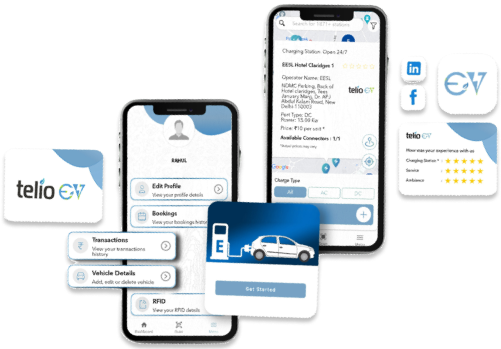Enhancing Electric Vehicle Charging with Advanced Management Software

The quick adoption of electric vehicles (EVs) has necessitated the development of efficient and user-friendly charging solutions. Central to this evolution are Electric Vehicle Charging Management Software (EV CMS) and EV Charging Apps, which streamline the charging process for both operators and users.
Understanding EV Charging Management Software
EV Charging Management Software serves as a thorough platform that makes it possible for Charge Point Operators (CPOs) and other stakeholders to monitor, manage, and optimize EV charging stations. Key functionalities consist of real-time tracking of charging stations, user authentication, payment processing, and energy management. By integrating these features, the software ensures effective operation and improves the user experience.
Key Features of EV Charging Management Software
1. Real-Time Monitoring and Control: Operators can supervise the status of charging stations, track energy consumption, and address issues without delay.
2. User Authentication and Access Control: The software manages user gain access to, guaranteeing that only authorized individuals can make use of the charging centers.
3. Payment Processing: It helps with seamless deals, supporting different payment techniques to cater to varied user preferences.
4. Energy Management: By optimizing energy distribution, the software lowers functional costs and supports grid stability.
5. Reporting and Analytics: Comprehensive information analysis help in informed decision-making and tactical preparation for network expansion.
The Role of EV Charging Apps
EV Charging Apps are created to offer EV owners with convenient access to charging facilities. These applications provide features such as finding close-by charging stations, real-time availability updates, navigation support, and remote monitoring of charging sessions. By boosting ease of access and user engagement, these apps play a crucial function in promoting the adoption of electric vehicles.
Integration with Open Charge Point Interface (OCPI)
The Open Charge Point Interface (OCPI) is a standardized procedure that helps with interoperability in between various EV charging networks. Integration with OCPI enables seamless roaming, allowing users to access numerous charging networks with a single account. This interoperability enhances user benefit and expands the availability of charging infrastructure.
Advantages of Implementing Advanced Charging Solutions
- Enhanced User Experience: User-friendly interfaces and trustworthy services increase customer fulfillment and loyalty.
- Operational Efficiency: Automation and real-time tracking lower manual intervention, reducing functional costs.
- Scalability: Advanced software solutions support the growth of charging networks to fulfill growing demand.
- Revenue Generation: Flexible rates models and efficient payment processing open new income streams for operators.
Conclusion
The combination of EV Charging Management Software and user-centric EV Charging Apps is pivotal ahead of time the electric vehicle ecosystem. Electric Vehicle Charging App These technologies not just streamline operations for service providers but likewise significantly improve the charging experience for users. As the EV market continues to grow, the adoption of such innovative solutions will be instrumental in satisfying the increasing need for effective and accessible charging infrastructure.